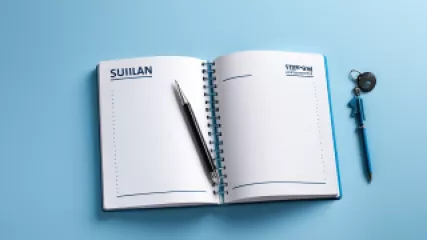Building a Self-Discipline Improvement Program: A Step-by-Step Guide
Introduction
Self-discipline is a crucial trait that allows individuals to stay focused, motivated, and achieve their goals. It is the ability to control one's impulses, emotions, and actions in order to maintain a structured and productive lifestyle. However, developing self-discipline can be challenging, especially in a world full of distractions and temptations. This step-by-step guide will provide you with valuable insights and practical strategies to build a self-discipline improvement program that will help you enhance your focus, productivity, and overall well-being.
Step 1: Define Your Goals
The first step in building a self-discipline improvement program is to define your goals. Start by identifying what areas of your life you would like to improve through self-discipline. Is it managing your time more effectively, adopting healthier habits, or staying committed to long-term projects? Consider both short-term and long-term goals, as well as personal and professional aspirations. Write them down to solidify your commitment and provide a clear roadmap for your journey.
Step 2: Break Down Your Goals
Once you have established your goals, break them down into smaller, manageable tasks. This approach allows you to focus on one step at a time, preventing overwhelm and increasing the likelihood of success. Create a list of actionable steps that will lead you closer to each goal. Prioritize these tasks based on their importance and start with the most critical ones. As you accomplish each task, celebrate your progress and move on to the next one.
Step 3: Create a Routine
A consistent routine plays a significant role in developing self-discipline. Design a daily schedule that aligns with your goals and incorporates activities that promote discipline. Allocate specific time slots for tasks such as exercise, work/study, rest, and personal development. Stick to this routine as closely as possible, as it trains your mind and body to follow a disciplined structure. Remember to allow for flexibility and self-care within your routine to maintain a healthy balance.
Step 4: Practice Time Management
Effective time management is essential for self-discipline. Evaluate how you currently spend your time and identify any time-wasting activities or habits. Minimize distractions by setting boundaries with technology, such as turning off notifications or implementing designated screen-free periods. Prioritize your tasks based on their importance and urgency, utilizing techniques like the Pomodoro Technique or time blocking to enhance focus and productivity.
Step 5: Develop Accountability Systems
Accountability systems can provide valuable support and motivation on your self-discipline journey. Find an accountability partner or join a group with similar goals to hold each other responsible for progress. Share your goals, action steps, and deadlines with them, and schedule regular check-ins or progress reviews. Additionally, consider using habit tracking apps or journals to monitor your daily activities and track your progress over time.
Step 6: Cultivate Positive Habits
Habits shape our daily lives and have a profound impact on our self-discipline. Identify habits that align with your goals and replace any detrimental ones. Start small and build momentum by focusing on one habit at a time. Use habit stacking, where you attach a new habit to an existing one, to increase the likelihood of success. Celebrate each milestone and be patient with yourself as you form new habits, as it takes time for them to become automatic.
Step 7: Practice Mindfulness
Mindfulness is a powerful tool for cultivating self-discipline. It involves being fully present in the moment and aware of your thoughts, emotions, and actions. Incorporate mindfulness practices such as meditation, deep breathing exercises, or journaling into your routine. These practices enhance self-awareness, reduce stress, and improve decision-making, ultimately strengthening your self-discipline.
Step 8: Stay Motivated
Maintaining motivation is crucial for sustaining self-discipline in the long run. Keep your goals visible by creating visual reminders, such as vision boards or goal trackers. Surround yourself with supportive and like-minded individuals who inspire and encourage you on your journey. Celebrate your achievements regularly, both big and small, to reinforce positive behavior and boost your motivation. Additionally, regularly revisit your goals and remind yourself of the benefits that self-discipline brings to your life.
Step 9: Embrace Failure and Learn from Setbacks
Self-discipline is not a linear process, and setbacks are inevitable. Embrace failure as an opportunity for growth and learning. When faced with setbacks, reflect on what went wrong and identify areas for improvement. Adjust your strategies if necessary, but never let temporary failures discourage you from pursuing your goals. Remember that self-discipline is a lifelong journey, and each setback is a chance to become stronger and more resilient.
Step 10: Practice Self-Compassion
Finally, practicing self-compassion is essential throughout your self-discipline improvement program. Be kind and understanding towards yourself, especially when facing challenges or setbacks. Treat yourself with the same level of care and compassion that you would offer to a close friend. Acknowledge your efforts and progress, no matter how small, and celebrate your commitment to personal growth and self-discipline.
Building a Self-Discipline Improvement Program: A Step-by-Step Guide - Written by Lana Harrison






